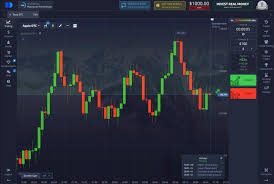
Understanding the Asset Trading Schedule
In today’s fast-paced financial markets, having a clear Asset Trading Schedule 자산 거래 일정 is crucial for success. Traders need to be aware of when assets are available for trading, understanding the nuances of trading schedules across different platforms and instruments is essential for maximizing potential gains and minimizing risks. This article will delve into the importance of an asset trading schedule, explore various types of trading schedules, and provide tips on how to effectively manage your trading activities around these schedules.
The Importance of an Asset Trading Schedule
Trading schedules play a significant role in the profitability and strategy development for traders. By knowing when markets open and close, as well as understanding the best times to trade specific assets, traders can make informed decisions that enhance their trading efficiency.
Moreover, an asset trading schedule provides a framework within which traders can plan their activities. Whether it’s day trading, swing trading, or long-term investing, having a structured schedule helps traders to focus on specific times and assets, reducing the temptation to react impulsively to market movements.
Types of Asset Trading Schedules
Different financial markets operate on varied trading schedules. Understanding these schedules is vital for any trader. Below, we highlight the major types of asset trading schedules you may encounter:
1. Forex Market Schedule
The foreign exchange (forex) market operates 24 hours a day, five days a week. It comprises different major markets including Sydney, Tokyo, London, and New York. Each market opens and closes at different times, which leads to varying levels of market activity and liquidity. Traders must track these schedules to capitalize on peak trading hours.

2. Stock Market Schedule
Stock markets have more rigid trading schedules compared to forex. Typically, stock exchanges, such as the New York Stock Exchange (NYSE) and NASDAQ, operate from 9:30 AM to 4:00 PM Eastern Time, Monday through Friday. Understanding pre-market and after-hours trading can also provide opportunities for savvy traders.
3. Cryptocurrency Market Schedule
Unlike traditional assets, the cryptocurrency market is open 24/7. However, price volatility can vary significantly depending on the time of day. Traders often monitor market trends and trading volumes specific to different times to enhance their trading strategies.
Strategies for Effective Trading Around Your Asset Trading Schedule
Having a clear trading schedule is just the first step; next, you need to strategize around it. Here are some effective strategies to consider:
1. Identify Peak Trading Times
Each asset has its peak trading times. For example, forex traders often find high volatility during the overlap of the London and New York sessions. Understanding these peak times allows traders to position themselves strategically to maximize profits.
2. Use Technical Analysis
Engaging in technical analysis can help traders identify the best times to enter and exit trades. By using tools such as trend lines, moving averages, and volume indicators, traders can make informed decisions that align with their trading schedules.
3. Stay Updated on Market News

Economic reports, earnings announcements, and geopolitical events can significantly impact asset prices. Keeping abreast of news related to your assets will allow you to adjust your trading schedule accordingly and identify potential trading opportunities.
Managing Your Trading Time
Time management is crucial in trading. Setting clear trading hours and sticking to them can help you avoid burnout. Here are a few tips to enhance your time management:
1. Create a Trading Plan
Document your trading strategies, goals, and schedules. This will serve as a guide to keep you focused and disciplined during your trading hours.
2. Use Trading Tools
Leverage trading platforms that allow you to set alerts and automate certain processes. This can help you stay on track with your schedule, reduce missed opportunities, and manage trades more efficiently.
3. Review Your Performance
Regularly review your trades and performance concerning your trading schedule. Analyzing what strategies worked and what didn’t can help you refine your approach for future trades.
Conclusion
In the world of trading, an effective asset trading schedule is paramount to achieving success. By understanding the various trading schedules and implementing strategies that align with them, traders can enhance their market engagement and potentially increase their profitability. Whether you are new to trading or an experienced trader, integrating a well-planned trading schedule into your routine can greatly benefit your trading practice.